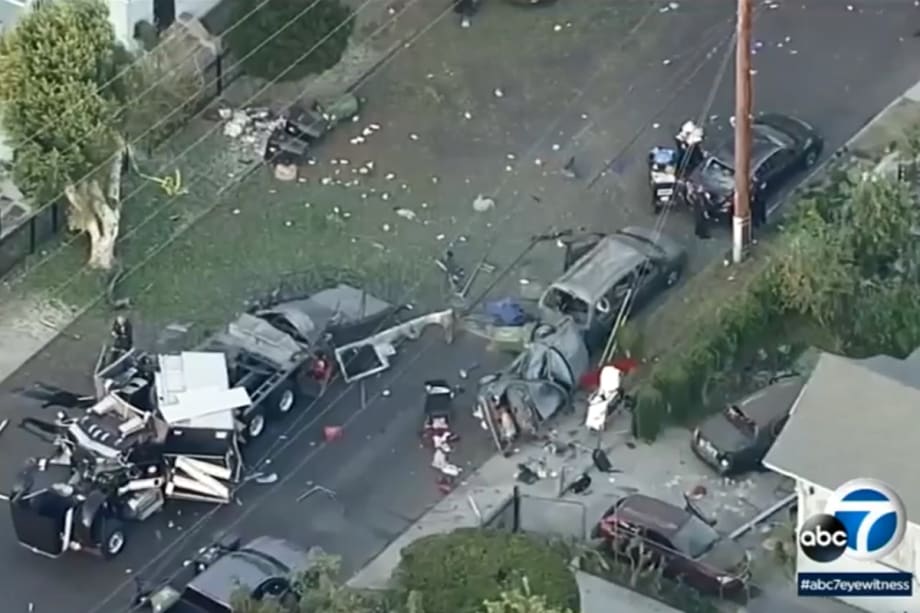There are countless options for aspiring law enforcement leaders to learn the basic—but crucial—skill of simply listening to the people who fall under their leadership.
Earlier this month, the Los Angeles Police Commission voted to have the Office of the Inspector General draft a "comprehensive report" on the LAPD's bomb squad training in the aftermath of a June 2021 incident in which a team seeking to dispose of a cache of illegal fireworks caused a substantial explosion in South Los Angeles.
According to KABC Television, the explosion destroyed a bomb squad truck and caused damage to 22 residences, 13 businesses, and 37 privately-owned vehicles. Most importantly, 17 residents and first responders had to be hospitalized with a variety of injuries.
An initial report by the Inspector General—which the Police Commission recently reviewed—found that the event revealed potential problems with staffing, training, and supervision.
The report indicated that one member of the team—identified only as "Bomb Technician C" had repeatedly "expressed concern" that the quantity and weight of the fireworks being placed into the department's Total Containment Vessel (TCV) was too powerful to control.
"This is too much material to [dispose of] in one TCV shot,'' he reportedly said, but his warnings went unheeded by both his colleagues and his supervisor.
Training or Leadership?
It's impossible to conclude for certain—absent immediate first-hand knowledge held only by those who were actually present at the scene at the time—whether there was insufficient training to determine if the load in the containment vessel was doomed to turn a truck into a hulk of twisted metal.
It's not impossible to reach the conclusion that this bomb tech's trepidation should have been given more careful consideration by the people "in charge" at the scene.
Somebody—or a group of somebodys—failed to listen when another somebody said, "Hey boss? This might be a mistake."
That failure to listen went "bang."
This isn't some touchy-feely do-goodery found in Harvard Business Review or Fortune or Fast Company about listening for "building relationships" or "increasing employee engagement and job satisfaction."
This is practical, tactical, and tangible.
It's logical. It's left of "bang."
Training for Leadership
There are countless options for aspiring law enforcement leaders to learn the basic—but crucial—skill of simply listening to the people who fall under their leadership.
There's the Law Enforcement Supervisors Leadership Training Program (LESLTP) presented by the Federal Law Enforcement Training Centers in Glynco, GA. There's the FBI National Academy in Quantico, VA.
There's an entire industry dedicated to producing conferences, seminars, presentations, books, and other resources intended to develop police leaders.
A simple statement comes to mind. "Leaders who don't listen will eventually be surrounded by followers who don't speak."
Learning from History
A leader's failure to listen to his or her followers can lead to disasters of truly "titanic" proportions.
Indeed, 110 years ago next month, the White Star steamer S.S. Titanic struck an iceberg in the North Atlantic about 370 nautical miles south-southeast of the coast of Newfoundland and sank to the bottom of the icy sea, taking with her more than 1,500 souls.
It's incredibly ironic that in 1898—a full 14 years before that fateful night—an author named Morgan Robertson penned a novella titled "The Wreck of the Titan" in which a fictional ocean liner sinks in the North Atlantic after hitting an iceberg.
It's even more ironic that, according to the U.S. Navy Department Library's Naval History and Heritage Command, in the days immediately before the sinking of the Titanic there were numerous warnings that ice had been "seen in the vicinity of the steamship lanes and naturally might be expected to cross those lanes."
Most ironic of all is the fact that the very iceberg the ship struck was the one she herself had reported.
Failure to listen is a failure to lead.













